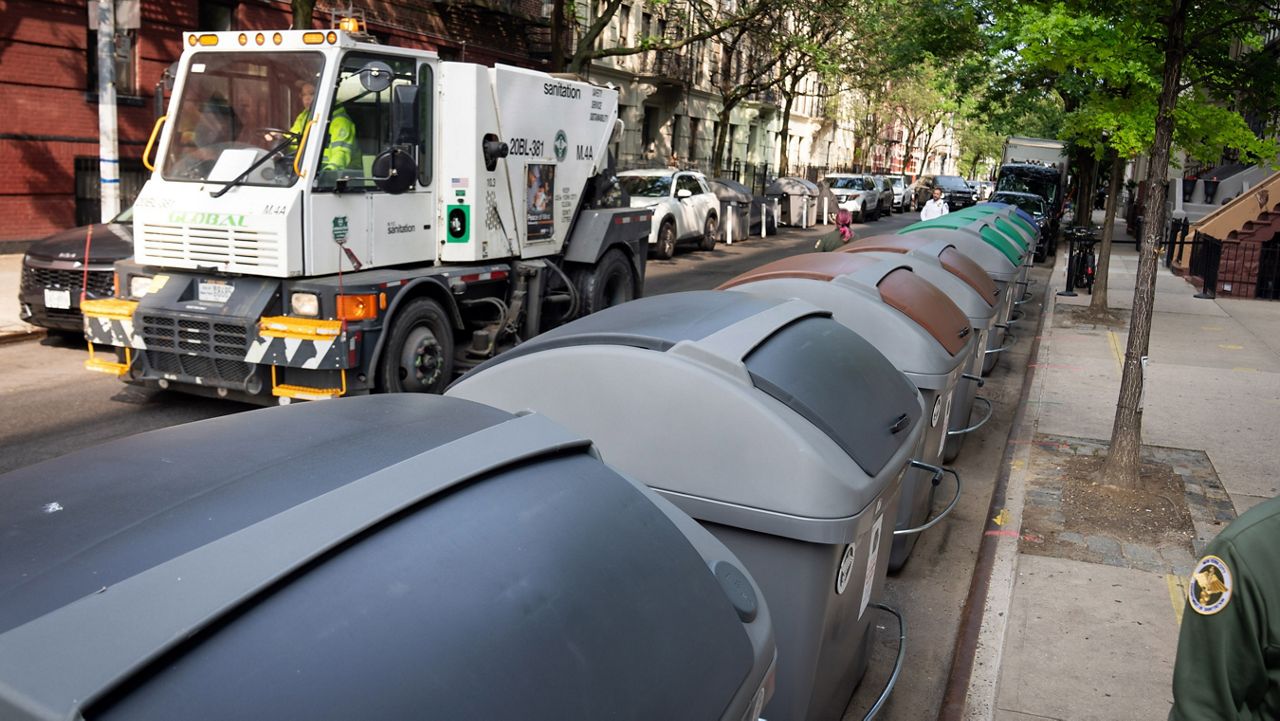West Harlem, Morningside Heights, Manhattanville and Hamilton Heights are all part of the community district that became the first in the city to containerize 100% of its trash.
As part of a pilot program, larger residential properties — all with 31 or more residential units, and some with 10 to 30 residential units — have been required to place their trash in “Empire Bins” positioned on curbsides throughout the neighborhood.
What You Need To Know
By 2032, proposed legislation would require most residential buildings with 10 or more units to dispose of trash in a stationary on-street container
“Empire Bins” positioned in the street right next to the curb have been piloted in a handful of neighborhoods
New rules would also allow the Department of Sanitation to charge residential buildings with 10 or more units $55 annually to each dwelling for the container itself
“It completely eradicated the rats,” said one West Harlem resident. “They’re great. I wish there were more throughout the city.”
Another neighbor agreed: “The rats, I don’t see as many of them, but it’d work more if everybody had them.”
While residents say it has helped curb the rat problem in the neighborhood, it has also impacted street parking. When the pilot program was fully implemented in West Harlem, 1,000 of the bins were installed, resulting in the loss of 500 parking spots in a 40-block radius.
“When the cars have to park, there is nowhere to park, and people who live in the neighborhood like me, I have car, I donated my car because I had nowhere to park,” explained one former West Harlem car owner.
Local City Council member and chair of the Committee on Sanitation and Solid Waste Management, Shaun Abreu, is pushing to expand the program citywide.
By 2032, the legislation would require most residential buildings with 10 or more units to dispose of trash in a stationary on-street container. Buildings with 10 to 30 units would have the option between an on-street container or a smaller wheelie bin.
It would also allow the Department of Sanitation to charge residential buildings $55 annually to each unit for the container itself.
Exemptions would be made for certain affordable housing, as well as low-income and rent-stabilized units.
“The city is on the cusp of a seismic shift in how we manage trash. It is so important that we get rid of the trash bag and that we now move to fully containerized trash citywide,” said Abreu, appearing on “Mornings On 1” Wednesday.
Rebecca Poole is the director of membership and communication for the Council of New York Cooperatives and Condominiums.
The nonprofit advocates on behalf of co-op and condo homeowners across the city. Poole says they are concerned about the added cost and how it will be implemented citywide.
“It’s quite literally another tax for a service that was previously provided by taxes,” Poole explained. “Not that we’re against containers per se, it’s just that we want to be consulted on where they’re placed. You know, currently they can be placed directly in front of [the] building entrance, lining the street. So we would like more input into how something that’s so important to the running of a building is being implemented.”
The City Council is expected to vote on the proposed legislation Wednesday.

